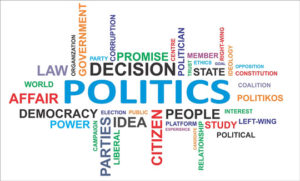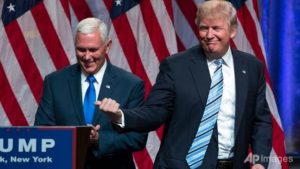This video is among my all-time favorite public television news broadcasts. It features a PBS NewsHour discussion with the late U.S. Sens. George McGovern and Barry Goldwater.
A liberal (McGovern) and a conservative (Goldwater) talked political differences between them and sought to put the 1988 presidential campaign into some sort of civil and proper perspective.
The moderator was Jim Lehrer, a fellow whose acquaintance I made while I was working in Beaumont many years ago. More on that perhaps at another time.
What Sens. McGovern and Goldwater sought to do in this discussion is delineate the differences between their respective philosophies. What is so remarkable is how much common ground these two old men had found and how they believed they found it when they served together in the U.S. Senate.
How did they manage such commonality? Well, they didn’t talk about it in their PBS interview, but I have a theory.
Their common respect was forged in their common history and their shared sacrifice during a time of dire peril for the United States.
McGovern and Goldwater served in the U.S. Army Air Corps during World War II. They both served heroically during that conflict. They brought their commonality together when they ended up in the Senate together. McGovern represented South Dakota, Goldwater represented Arizona.
They were far from the only two men of disparate philosophies to forge friendships in the Congress during their time together. I think often of how Sen. Bob Dole developed a unbreakable bond with Sen. Daniel Inouye; Dole is a Kansas conservative, Inouye was a Hawaii liberal. They, too, became brothers in arms in World War II, both suffering grievous battlefield injuries and going through rehab together. Their common suffering became their bond and it overrode whatever political differences they had while serving in the Senate.
Vietnam produced similar friendships that transcended partisan politics. I’ll cite two examples: Sens. John McCain and John Kerry both served with valor and distinction during the Vietnam War. McCain is a Republican; Kerry is a Democrat. They both worked in tandem to allow the United States and Vietnam to establish diplomatic ties long after the end of that terrible and divisive conflict.
These men all knew the meaning of sacrifice for the sake of the country they all loved.
As George McGovern told Barry Goldwater during that 15-minute PBS discussion, they have much more in common now than they did in the old days. Yes, but the common experience they brought with them to their shared public service taught them to respect the other’s point of view, that the “enemy” didn’t sit in the same legislative chamber.








